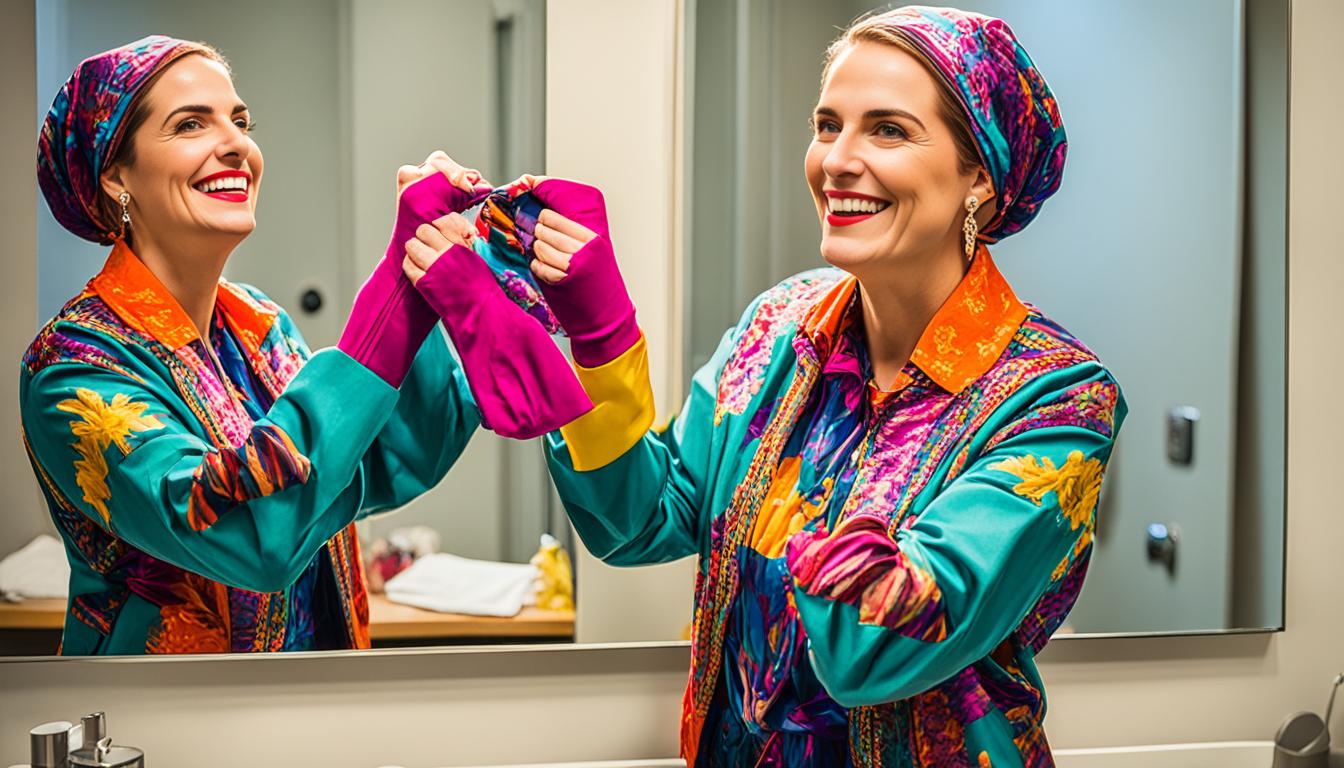Throughout the last decade, I have lovingly supported my wife as she battled with endometriosis and fibromyalgia, chronic illnesses that have profoundly shaped both our lives. Witnessing her journey and experiencing the challenges firsthand has transformed me into the man I am today. As a caregiver, I have learned the importance of maintaining my own identity beyond the caregiver role, not only for my own well-being but also as a means to better support my wife.
The journey has not been easy. The relentless demands of caregiving often lead to burnout, neglecting my own needs in the process. However, I have come to realize that practicing self-care and finding personal fulfillment as a caregiver are crucial for both myself and my wife. Through the ups and downs, I have discovered the power of self-advocacy and have used my voice to raise awareness about these chronic illnesses, particularly among men who find themselves in a similar position.
My journey led me to create a blog where I document my experiences and share my knowledge and expertise in navigating the challenges of being a male caregiver. This platform not only serves as a valuable resource for others facing similar circumstances but also provides me with a therapeutic outlet to reflect and grow. By maintaining my authenticity and identity, I have found strength, resilience, and a renewed sense of purpose in my role as a caregiver.
Caregiving is a journey that tests our limits and reshapes our identities, but it is also an opportunity for growth and self-discovery. Through self-care, personal fulfillment, and a supportive community, we can maintain our sense of self while providing the love and compassion our partners deserve.
Stay tuned for the following sections where we will explore the signs of losing your identity as a caregiver, setting boundaries, engaging in fulfilling activities, staying connected with others, scheduling time for yourself, taking care of your health, seeking support, discovering new projects and goals, and embracing your values to maintain your identity beyond the caregiver role.
Signs of Losing Your Identity as a Caregiver
When you dedicate yourself to caregiving, it’s easy to get lost in the role and neglect your own sense of identity. But maintaining a strong self-identity is crucial for your well-being and personal fulfillment. Watch out for these signs that you may be losing your identity as a caregiver:
- Using “we” instead of “I” in conversations: When you constantly refer to yourself in the context of caregiving, it can indicate that you have merged your identity with your role.
- Constantly thinking about your loved one and caregiving responsibilities: While caregiving requires attention and focus, it’s important to maintain a balance and still have mental space for your own interests and needs.
- Neglecting your own needs: If you consistently put the needs of your loved one above your own, it may be a sign that you are losing sight of your own identity and well-being.
- Losing interest in things you used to care about: If hobbies, passions, or relationships outside of caregiving no longer hold your interest, it’s essential to reevaluate and find ways to maintain your personal interests.
Recognizing these signs is the first step in reclaiming your identity as a caregiver. It’s important to prioritize your own hobbies, interests, and relationships while providing care to your loved one. By maintaining a sense of self, you can cultivate a healthier and more balanced caregiving experience.

Setting Boundaries to Maintain Your Identity
As a caregiver, it can be easy to lose sight of your own needs and identity amidst the demands of caregiving. Setting boundaries is an essential practice to maintain your sense of self and protect your mental health.
When setting boundaries, it’s important to clearly communicate them to your loved one. Let them know what is acceptable and what is not, and be firm in your expectations. Expressing your boundaries in a calm and assertive manner helps establish clarity and understanding.
It’s equally important to establish consequences for when those boundaries are crossed. These consequences should reinforce the importance of respecting your boundaries without being punitive. For example, if a boundary regarding privacy is violated, a consequence could be taking a brief break to regroup and reaffirm your personal space.
By setting and maintaining boundaries, you create a structure that allows you to prioritize your own well-being. This not only preserves your identity as an individual but also ensures that your own needs are met, reducing the risk of caregiver burnout.

Engaging in Fulfilling Activities
As a caregiver, it’s easy to get caught up in the day-to-day responsibilities of caring for your loved one. However, it’s important to prioritize activities that bring you joy and fulfillment. Engaging in hobbies, creative outlets, or spending time with friends can provide a much-needed break and help you maintain a sense of self.
By taking time for yourself and cultivating personal interests, you can contribute to your overall well-being and prevent burnout. Whether it’s painting, gardening, or playing a musical instrument, these activities allow you to express yourself and find solace in your passions.
Furthermore, spending quality time with friends and loved ones can provide emotional support and create moments of joy amidst the challenges of caregiving. Laughing, sharing stories, and engaging in shared activities can remind you of the person you were before becoming a caregiver and help you maintain a strong sense of identity.
When engaging in fulfilling activities, it’s essential to prioritize caregiver self-care. Remember that taking care of yourself is not selfish but necessary for both your well-being and the well-being of your loved one. By maintaining a healthy balance between caregiving responsibilities and personal interests, you can be a better caregiver and maintain your own happiness and fulfillment.
Benefits of Engaging in Fulfilling Activities:
- Fosters a sense of individuality and personal identity
- Provides a break from caregiving responsibilities
- Reduces stress and prevents burnout
- Allows for self-expression and creativity
- Strengthens relationships and creates moments of joy
Tips for Incorporating Fulfilling Activities into Your Caregiving Routine:
- Schedule dedicated time for activities that you enjoy
- Explore new hobbies or revive old interests
- Set realistic goals and focus on the process rather than the outcome
- Join a community group or take a class related to your interests
- Delegate caregiving responsibilities to trusted family members or professional caregivers to create time for yourself
- Practice self-compassion and allow yourself to prioritize your own well-being
Remember, maintaining activities that bring you joy and fulfillment is an important aspect of caregiver self-care. Engaging in these activities allows you to preserve your sense of self and nourish your own well-being as you continue to provide care for your loved one. Take the time to honor your own needs and pursue personal goals, and you’ll find that it positively impacts both your caregiving journey and your overall happiness.

Staying Connected with Others
As a caregiver, it can be easy to feel isolated and overwhelmed by the demands of your role. That’s why it’s crucial to make an effort to stay connected with others. Maintaining relationships and having a strong support system can provide emotional support, help you maintain your identity outside of the caregiver role, and remind you that you are not alone in your caregiving journey.
One way to stay connected is by hosting gatherings or attending social events with family, friends, and colleagues. These gatherings can serve as a break from your caregiving responsibilities and provide an opportunity to connect with loved ones on a deeper level.
Remember: Relationships require effort and nurturing, so don’t hesitate to reach out and organize get-togethers to show your loved ones how much they mean to you.
Participating in Support Groups
In addition to maintaining personal relationships, participating in support groups can provide a sense of community and understanding. Support groups consist of individuals who are going through similar experiences and can offer valuable insights, advice, and emotional support.
Consider joining a local caregiver support group or an online community where you can connect with other caregivers. These platforms create a safe space to share your experiences and concerns, receive support, and offer support to others.
Tip: Look for organizations or online forums specific to your loved one’s condition or type of caregiving to find a support group that matches your needs.
| The Benefits of Staying Connected | Ways to Maintain Relationships |
|---|---|
| 1. Emotional support during challenging times | 1. Regularly schedule quality time with loved ones |
| 2. Validation and understanding from others in similar situations | 2. Exchange letters or emails with long-distance friends |
| 3. Opportunities for socialization and relaxation | 3. Utilize video calls to stay connected with family and friends |
| 4. Reduced feelings of isolation and loneliness | 4. Attend social events, such as birthdays or anniversaries |
Staying connected with others is not only beneficial for your own well-being but also for the well-being of your loved one. By maintaining relationships and having a strong support system, you can find comfort, share your caregiving journey, and receive the support you need to navigate the challenges that come with being a caregiver.

Scheduling Time for Yourself
As a caregiver, it can be easy to lose sight of your own needs while focusing on the well-being of your loved one. However, prioritizing personal time for yourself is crucial for maintaining your own mental health and overall well-being. Caregiver self-care plays a vital role in ensuring that you can continue providing care without experiencing burnout. By scheduling dedicated time for yourself, you can engage in activities that bring you joy, relaxation, and personal fulfillment.
During your personal time, consider pursuing activities that you may have put on hold due to caregiving responsibilities. This can include hobbies you enjoy, such as reading, painting, gardening, or playing a musical instrument. Use this time to rejuvenate your mind, body, and spirit.
Engaging in self-care not only helps maintain your identity but also allows you to recharge and replenish your energy. It is important to remember that taking care of your own physical and emotional well-being is not selfish but necessary. By prioritizing personal time, you are better equipped to handle the challenges of caregiving while also maintaining your sense of self.
Remember:
- Set aside regular time for yourself
- Engage in activities that bring you joy and relaxation
- Pursue personal goals and interests
- Recharge and rejuvenate your mind, body, and spirit
By prioritizing self-care and scheduling time for yourself, you are better equipped to provide the best care possible for your loved one. Don’t neglect your own needs and remember that taking care of yourself is an essential part of being a caregiver.
Taking Care of Your Health
As a caregiver, it’s easy to prioritize the health and well-being of your loved one over your own. However, maintaining your own physical health is crucial for your overall well-being and your ability to provide quality care. By prioritizing self-care and implementing healthy habits, you can ensure that you have the energy and stamina to continue fulfilling your caregiver responsibilities.
The Importance of Rest and Sleep
Getting enough rest and sleep is essential for maintaining caregiver health. Lack of sleep can lead to exhaustion, irritability, and decreased cognitive function, making it difficult to provide the necessary care. Aim for at least 7-8 hours of sleep each night and take breaks throughout the day to rest and recharge. Remember, taking care of yourself is just as vital as taking care of your loved one.
Eating Balanced Meals
A balanced diet is essential for maintaining your physical well-being. As a caregiver, it may be tempting to rely on quick and unhealthy meals, but nutrient-rich foods can provide the energy and nutrients you need. Incorporate fruits, vegetables, lean proteins, whole grains, and healthy fats into your meals. Planning and preparing meals ahead of time can help you stay on track and ensure that you are fueling your body properly.
Engaging in Low-Impact Exercise
Engaging in regular physical activity can benefit both your physical and mental health. Low-impact exercises like yoga, walking, or swimming can help relieve stress, improve mood, and increase energy levels. Find activities that you enjoy and can easily incorporate into your daily routine. Remember, even short bursts of exercise can make a positive impact on your overall well-being.
Mindful Practices for Mental Health
Maintaining mental health is just as important as physical health for caregivers. Mindful practices such as meditation, deep breathing exercises, and journaling can help reduce stress and promote mental well-being. Taking a few minutes each day to focus on your mental health can make a significant difference in your ability to cope with the challenges of caregiving.
In conclusion, as a caregiver, it’s vital to prioritize your own health and well-being. By getting enough rest, eating balanced meals, engaging in low-impact exercise, and practicing mindful techniques, you can maintain your physical and mental well-being. Remember, taking care of yourself allows you to provide the best care possible for your loved one.
Seeking Support
As a caregiver, it’s important to remember that you don’t have to go through this journey alone. Seeking support from various resources can be incredibly beneficial in maintaining your identity and finding the balance between caregiving responsibilities and your own well-being.
Talking to a Counselor
Talking to a counselor can provide you with a safe and confidential space to share your experiences, challenges, and successes as a caregiver. A professional counselor can offer guidance, help you navigate difficult emotions, and provide coping strategies to manage stress and caregiver burnout. They can also help you explore your personal goals and aspirations outside of the caregiver role, allowing you to maintain your identity beyond caregiving.
Attending Support Groups
Attending support groups specifically designed for caregivers can be an invaluable source of support and encouragement. These groups allow you to connect with others who are going through similar experiences, providing a sense of community and understanding. In support groups, you can share your concerns, learn from others’ experiences, and gain valuable insights and advice on managing your caregiver responsibilities while maintaining your own well-being. Support groups offer a safe space to express your feelings and receive emotional support, promoting a sense of belonging and reducing feelings of isolation.
| Benefits of Talking to a Counselor and Attending Support Groups |
|---|
| 1. Emotional support from others who understand your challenges |
| 2. Sharing experiences and gaining valuable insights |
| 3. Coping strategies to manage stress and caregiver burnout |
| 4. Guidance in maintaining your identity outside of caregiving |
| 5. Reduction of isolation by connecting with a supportive community |
Remember, seeking support is not a sign of weakness but a proactive step towards maintaining your well-being as a caregiver. Reach out to caregiver support organizations, local counseling centers, or online communities to discover caregiver support resources in your area.
Discovering New Projects and Goals
As a caregiver, it’s essential to adapt to your current situation and discover new projects or goals that align with your values and interests. Caregiving can sometimes put your personal goals on hold, but it doesn’t mean you can’t find fulfillment and personal growth along the way. Embracing new experiences and focusing on what matters to you can help you maintain your identity while caregiving.
When searching for new projects or goals, it’s important to consider your caregiver responsibilities and the time and energy you have available. Start by reflecting on your passions, interests, and values. What are the activities or causes that ignite a fire within you? Don’t be afraid to dream big, but also ensure your goals are realistic and achievable given your current circumstances.
Examples of Discovering New Projects and Goals
- Start a blog or write a book about your caregiving journey and the lessons you’ve learned.
- Take up a new hobby that can be done in short bursts of time, such as painting, sewing, or gardening.
- Join a local community organization or a volunteer group that aligns with your interests.
- Set fitness goals that can be incorporated into your caregiving routine, like taking daily walks or practicing yoga.
- Learn a new skill or enroll in an online course related to a subject that fascinates you.
Remember that finding new projects and goals doesn’t mean neglecting your caregiving responsibilities. It’s about finding a balance that allows you to pursue your own interests while still providing quality care. With careful planning and time management, you can carve out moments for personal growth and achieve a sense of fulfillment.
| Benefits of discovering new projects and goals | How it contributes to personal growth |
|---|---|
| Provides a sense of purpose | Helps you define and strive for personal fulfillment |
| Reduces stress and burnout | Allows you to focus on something outside of caregiving responsibilities |
| Keeps your mind active and engaged | Expands your knowledge and skills |
| Creates a sense of achievement and satisfaction | Boosts self-confidence and self-esteem |
Embracing Your Values
As a caregiver, it is essential to identify and align with your values to maintain your sense of self and find fulfillment in your role. Take the time to reflect on what inspires you, what brings you joy, and what truly matters to you. Understanding your values will serve as a guiding compass, helping you make decisions that align with your personal beliefs and priorities.
When you align your actions with your values, you can find true fulfillment as a caregiver. By prioritizing the things that matter most to you, you can make choices that are in line with your sense of purpose and authenticity. Whether it’s spending quality time with your loved one, advocating for their needs, or seeking support, embracing your values allows you to create a caregiving experience that is meaningful and true to who you are.
By consistently acting in alignment with your values, you preserve your sense of self throughout your caregiving journey. This not only benefits you but also positively impacts the care you provide. When you are fulfilled and authentic in your role as a caregiver, you can offer compassion, patience, and love from a place of genuine connection and understanding. Embracing your values not only enhances your own well-being but also enriches the lives of those you care for.
